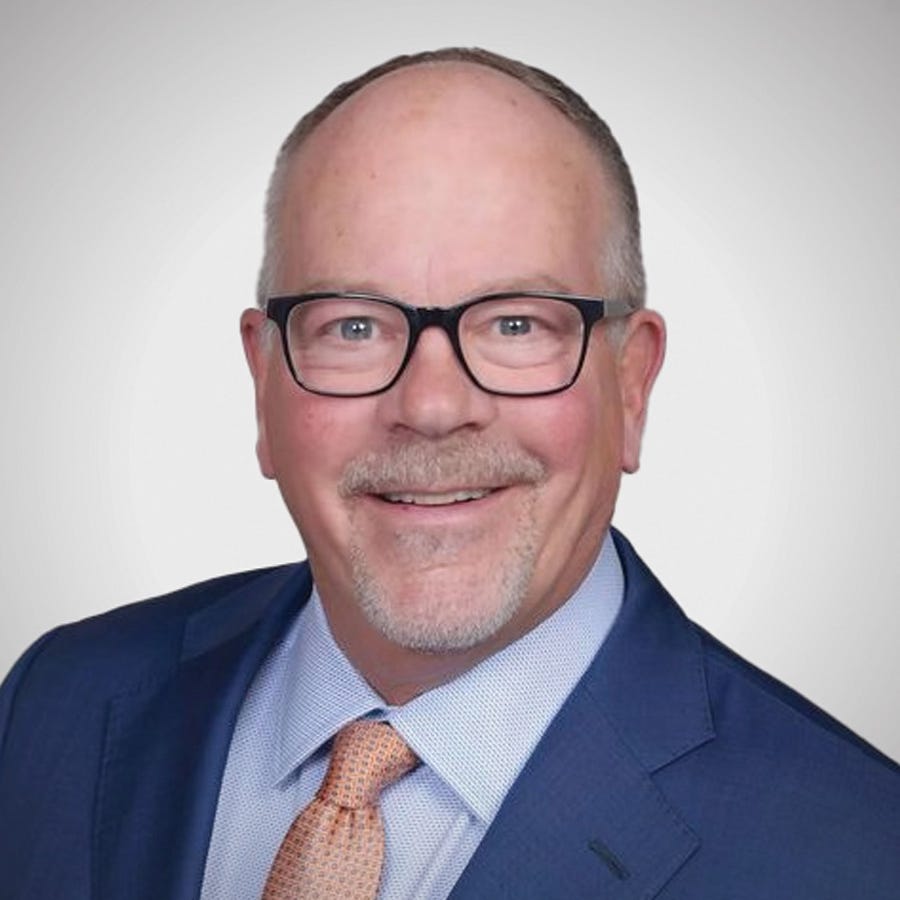↪re: The Widening Gyre
“In a world of perpetual change, it’s not the stability of economies we should seek but our ability to respond and adapt." –Paul Samuelson
→ econVuere:Vue ↪ October 31, 2024
Dear Readers,
What hasn’t happened this October? Shifting alliances, ongoing conflict, changing economic policies, and even natural disasters have moved the center of global stability to a new and more tenuous place. Constant adaptation is critical.
As the US election season draws to a close, we have tried to keep our eye on the prize: the US economy. You’ll find recent Hale Report podcasts below, including the latest with Brian Wesbury. We will be posting new episodes with our November guests, Jason Furman and Ed Yardeni. They each represent a range of views and a range of approaches to the discipline of economics.
October is also the month of the annual fall meetings of the IMF and World Bank. econVue contributor Karim Pakravan has kept us informed about what was being discussed on the 80th anniversary of the Fund. He writes the IMF has shown remarkable resiliency over the years, and has been able to both “respond and adapt” during times of crisis. Contrast this track record with the WTO.
The Fund has 1200 PhD economists from just about every country their 191 member states represent, so their presentations are quite a feast, and I always learn something valuable. We will have more coverage to follow, including links to some of the most important and intriguing sessions.
Conflicts around the world continue to be of great concern, and the defense expertise of Stephen Bryen has kept econVue readers up to date on the latest developments. I wrote about two subjects, the economic impact of boycotts and natural disasters.
With the agreement of our participants, we posted the recording of our subscriber-only panel, including the Q&A, to everyone on Substack, because we thought that the conversation we had about the Fed, inflation and interest rates was so useful. Speakers included Robert J Gordon, Richard Katz, Michael Lewis, Karim Pakravan, Gordon Parrish, Michele Wucker and our valued econVue subscribers.
Next Friday, we will be hosting a Zoom call to discuss the impact of the election on the US and global economy. Details to follow. As I mentioned in a letter to subscribers last week, econVue is studiously non-partisan, so we hope to have a clear-eyed, open discussion about what comes next.
Finally, I cannot resist sharing:
🎃Happy Halloween from Illinois, the pumpkin capital of the United States.
–𝓁𝓎𝓇𝒾𝒸 💬
Editor-in-Chief
re:Vue is all our newsletters condensed into one convenient, unobtrusive e-mail, prefaced by our editorial commentary. You can select exactly which econVue newsletters you receive or omit, including this one, at any time in your econVue account..: Stories in ↪re:Vue
↪: Now on econVue 🔈
1.:
🎧 THE HALE REPORT™ ⸱ Episode 59John Mauldin — Economic Cycles & Rejuvenation →
Hosted by LYRIC HUGHES HALE ⸱ Sep 8, 2024
My guest for the 59th episode of The Hale Report™ My guest is a household name in the world of finance, John Mauldin of Mauldin Economics. He makes complex topics approachable to broad audiences, including more than a million subscribers to his free weekly newsletter, Thoughts from the Frontline. Co-founder of Mauldin Economics, his perspective is sought after in the financial industry for his thought-provoking viewpoints, and by investors for his personal approach to money. 💬
2.:
🎧 THE HALE REPORT™ ⸱ Episode 60Marc Faber — Contrarian Forecasting →
Hosted by LYRIC HUGHES HALE ⸱ SEP 27, 2024
My guest for the 60th episode of the Hale Report is Marc Faber, the legendary Swiss-born investment analyst and fund manager. His academic background, combined with years of hands-on experience in financial markets, helped shape his unique analytical style. Faber is known for his contrarian views on financial markets and often pessimistic predictions about the global economy, earning him the nickname Dr Doom. He gained international prominence through his newsletter, The Gloom, Boom & Doom Report, which focuses on economic trends, asset bubbles, and market volatility. 💬
3.:
🎧 THE HALE REPORT™ ⸱ Episode 61Brian Wesbury — Supply Side Economics →
Hosted by LYRIC HUGHES HALE ⸱ OCT 26, 2024
Welcome to the 61st episode of the Hale Report. My guest is Brian Wesbury, chief economist at First Trust Advisors LP. He has also advised the Federal Reserve and the US Congress, among his other policy roles. Wesbury is a business-focused supply-sider. He lives up to Henry Hazlitt’s definition of a good economist, looking beyond the data and to the real economy, in order to understand the structural issues that affect global growth and innovation. 💬
4.:
👥 PANELSWas 50 bps too much?
ROBERT GORDON, LYRIC HUGHES HALE, RICHARD KATZ, MICHAEL LEWIS, KARIM PAKRAVAN, GORDON PARRISH, AND MICHELE WUCKER ⸱ SEP 18, 2024
Our readers predicted a 25 bps cut, and even our panelists were surprised by 50.
Our panel thought that the Fed would cut another 50 bps by the end of this year, but after the robust Oct 4th jobs report, there is renewed speculation that the Federal Reserve could hold rates steady in November. 💬
↪: Latest articles
5.:
§ Policy & MicroThe IMF at 80 →
A Legacy of Crisis and ChangeKARIM PAKRAVAN ⸱ OCT 18, 2024
“The IMF seems uniquely qualified to meet the profound changes in the global economic and financial system through its eight decades-long operational and research track record….While its record on governance reform is incomplete, the IMF remains a central element of the Global Financial Architecture. More work needs to be done, and in the words of Raghuram Rajan, professor at the University of Chicago Booth School ‘If the IMF didn’t exist, we would have to invent it.’”
6.:

§ Energy & ImpactSwept Away →
The Economics of DisastersLYRIC HUGHES HALE ⸱ OCT 17, 2024
“In a complex and contentious world, global cooperation to predict, prevent, and recover from natural and manmade disasters will face increasing challenges. Whether confronting mankind’s ability to inflict harm upon itself, or nature’s fury, technology holds the potential to mitigate—or exacerbate—both.”
7.:

§ ConflictBigger Wars on the Horizon? →
If diplomacy fails, four major flashpoints could trigger broader conflictSTEPHEN BRYEN ⸱ SEP 30, 2024
“There are many flash points, and the danger of a larger conflict cannot be ruled out entirely. Many of these flashpoints are interconnected, and miscalculation could trigger a series of events that could spiral out of control, given the current divide of world powers and their respective spheres of influence. The economic recovery that the world has been making since Covid could vanish as a result.”
8.:
§ RegionalUnderstanding Risks to Global Growth →
”If a lamplighter could see the world today…”LYRIC HUGHES HALE ⸱ SEP 25, 2024
“In the medium term, emerging markets will replace the demand that has been lost to China. In the longer term, technological advances leading to greater productivity will likely have a salutary, perhaps revolutionary impact, in ways we can scarcely envision. We often forget, in spite of the horrors that still persist, that the world we live in today would seem unimaginably wonderful to our ancestors. We have replaced awe with disgruntlement, instead of taking action to create the future we desire.”
↪: Who’s on econVue
9.:
VOICES📍Chicago, IL
Michael Lewis is the founder of Free Market, Inc. Before founding FMI, Mr. Lewis was an economist at Data Resources, Inc. and Atlantic Richfield Co. He was Chief Economist from 1978 to 1982 at Stein Roe & Farnham. He is known as one of the best Fed watchers in the business. Ask him about prime numbers.
Mike was our first guest on the Hale Report, and was recently a featured panelist on our Jackson Hole series.
Focus
→ Monetary policy
→ In-depth data analysis of the US economy
→ How disasters affect data
→ How macroeconomics impacts the consumer
→ The economic implications of international trade
🖊️ Vue⫶𝓹𝓸𝓲𝓷𝓽𝓼
⇣
econVue contributors share their latest thoughts on the global economy and their experiences covering it
⫶
10 .:
OCT 27, 2024
⫶
11 .:
JUN 20, 2024
📌 Notes
12 .:
13 .:
14 .:
Keep reading with a 7-day free trial
Subscribe to econVue to keep reading this post and get 7 days of free access to the full post archives.














